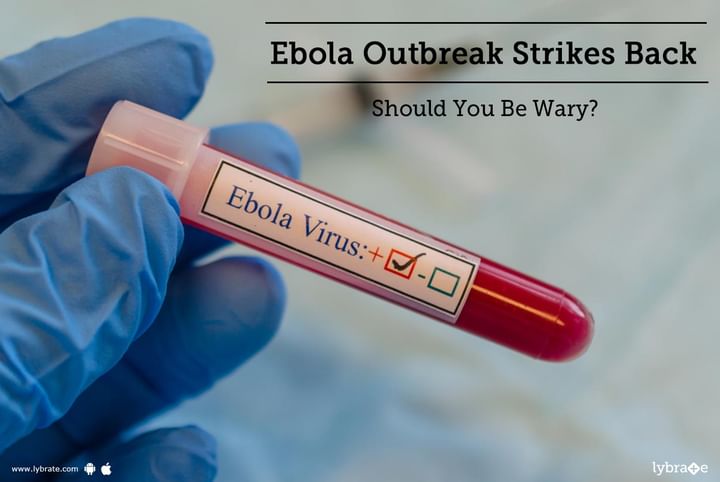Ebola Outbreak Strikes Back - Should You Be Wary?
The recent outbreak of Ebola in the Democratic Republic of Congo has hit the headlines worldwide. The outbreak in Central Africa is the second largest in history and the worst the country has ever seen. 811 people have reported symptoms of the deadly disease, and 750 have tested positive for the same. The first case of Ebola this week was confirmed in Goma. The World Health Organization (WHO) has considered the risk of transmission in the recent outbreak ‘very high’ at the regional and national levels. However, global risk remains low.
What is Ebola all about?
Ebola is a rare, deadly virus that spreads through direct contact with an infected person’s bodily fluids. Humans can contract the virus from infected animals too. However, Ebola does not spread by breathing the same air as an infected person, by shaking hands with them, or sitting close to them. For the virus to transmit, a diseased person’s bodily fluids or blood needs to pass onto another individual through the nose, eyes, mouth, abrasions or cuts on the skin.
A Brief History of the Deadly Virus
Ebola first emerged in Zaire and Sudan, in 1976. The first outbreak left over 284 people infected with a mortality rate of 53%. The second Ebola outbreak emerged a few months later from Zaire and Yambuku infecting 318 people with the highest mortality rate – 88%. Since the time, sporadic outbreaks have been seen in West and Central Africa. In 1989, infected monkeys imported from the Philippines introduced a strain of Ebola virus, known as Ebola-Reston, in Reston, Virginia.
What causes Ebola?
Researchers are yet to find the actual cause of the Ebola virus. The disease is transmitted through direct contact with –
-
An infected person's blood or body fluids – stool, saliva, breast milk, urine, sweat or vomit
-
Contaminated objects, such as syringe and needles
-
Infected animals like primates and bats
How to tell if a person is infected with Ebola?
Symptoms of Ebola virus disease usually begin to show 8-10 days after an individual contract the virus.
Symptoms include –
-
Unexplained bleeding or bruising – bloody nose, blood in urine, and bloodshot eyes
Remember, the virus cannot be transmitted to another person until these symptoms are revealed.
Is there any cure for Ebola?
Currently, there is no cure or vaccine for Ebola virus disease. However, upon encountering the above symptoms, you should consult a doctor immediately. The basic treatment involves going for blood transfusion and supportive care.
How to Stay Safe?
You can stay safe or prevent yourself from contracting the virus by following these measures –
-
Drink fluids to avoid dehydration and balance electrolytes in your body
-
Monitor intake of salt
-
Keep your blood pressure under control
-
Treat any cuts and infections immediately
-
Avoid travelling to places where cases of outbreaks of the virus have been reported
Living with Ebola virus is certainly not easy. Even if the disease is cured, it may have lasting effects on the survivor.



+1.svg)
